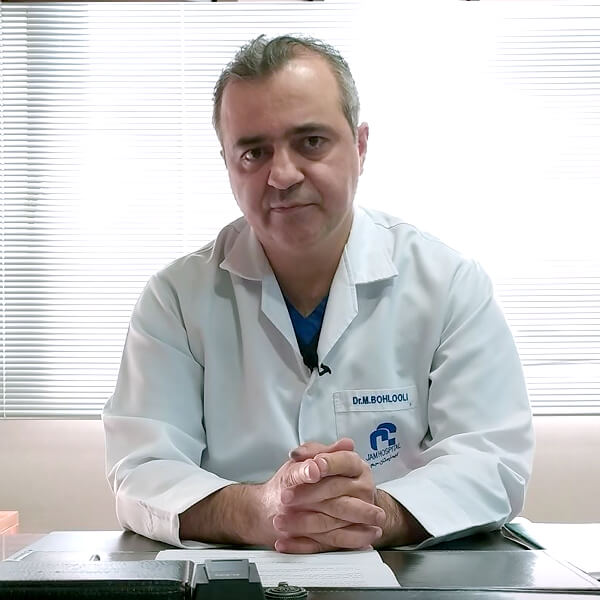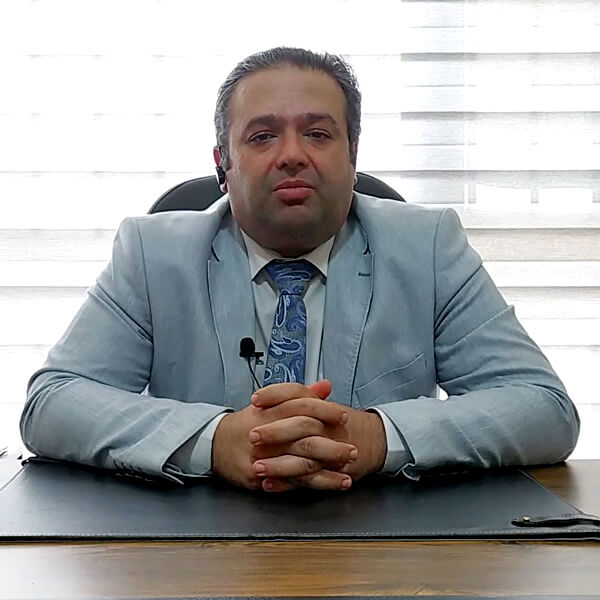Dr. Maryam Mazaherioun
nutritionist and member of the Iranian and Canadian Nutrition Association
In this video, Dr. Maryam Mazaherioun a nutritionist and member of the Iranian and Canadian Nutrition Association, explained about nutrition, especially the appropriate diet for breast cancer patients.
The text of Dr. Mazaherioun‘s speech
Hello, I am Dr. Maryam Mazherion, PhD in nutrition and diet therapy. Considering that we are in breast cancer awareness month, I wanted to provide you with a series of recommendations and solutions regarding the prevention and treatment of breast cancer: Unfortunately, cancer is spreading day by day in developing and developed countries. Meanwhile, breast cancer is one of the most common cancers among women in developing and developed countries. Despite the rapid diagnosis and treatment of this type of cancer, this disease is the second most common cancer among women. Unfortunately, during the last few decades, its prevalence has increased three to four times. In Iran, breast cancer accounts for 12.5% of all cancers. And it is known as the sixth cause of death, of course, before the spread of Corona in Iran. And if we want to actually give a percentage, the annual prevalence of breast cancer in Iran is 28.4 people per hundred thousand people.
But what are the causes of breast cancer? Well, we can divide this cause into two parts: unavoidable factors and preventable avoidable factors. Among the inevitable factors, we can say that 5 to 6 percent of cancers have hereditary factors. It means genes that are inherited from parents and usually these genes are Brca2 and Brca1. Menstruation at a young age and late menopause are actually another cause of breast cancer. Pregnancy at an advanced age and lack of breastfeeding are other factors that we can mention. But one of the factors that can prevent the occurrence of breast cancer is lifestyle modification. That is, people who are sedentary and follow inappropriate and high-fat diets and the so-called western diets. And use a lot of alcohol and tobacco. It has been seen that they are more exposed to this disease.
But what are our nutritional recommendations to prevent this disease? The first recommendation we make is to use less saturated fat. Saturated fatty oils such as ghee, butter, palm oil, solid vegetable oils. Therefore, due to their chemical structure, fats cause various types of diseases such as cardiovascular diseases, fatty liver and types of cancers such as breast, prostate and uterine cancer.
The next recommendation we make is that people must use legumes and whole grains. In the latest research conducted by Harvard University and its results were published on April 5, 2020. It has been shown that people who use more bran in their daily food are 8% less likely to get breast cancer. You know that bran reduces the level of estrogen and blood sugar, and in this way can prevent the occurrence of breast cancer. The use of green leafy vegetables such as cabbage and spinach can cause the risk of cancer due to their carotenoids and flavonoids. Citrus fruits have anti-cancer, anti-inflammatory and antioxidant properties due to having a series of antioxidant substances such as vitamin C, carotenoids and flavonoids such as hesperidin and naringenin. Omega 3 found in cold water fish such as salmon and sardines can reduce the risk of breast cancer by 14%. Using fermented foods such as yogurt and kefir increases the body’s immunity due to the presence of probiotics. And as a result, they can reduce cancers. There are a series of vegetables that contain organosulfur substances such as garlic, onions and leeks. These foods have very strong antioxidant properties. And known as anti-cancer substances and in a series of herbs and spices such as parsley, oregano, thyme, turmeric, curry, ginger and rosemary, these have antioxidant and anti-inflammatory substances. which can help the body to prevent cancer.
An interesting research has been done on peaches and it has been shown that women who use peaches twice a week have a 48% reduction in breast cancer. And they also tested the polyphenols obtained from peaches on cancer cells in the cell culture medium and found that the polyphenols extracted from peaches prevent the growth, reproduction and progress of a line of cancer cells.
Sports activity plays an important role in prevention, treatment and even after recovery because various studies have shown that physical activity actually reduces breast, endometrial, prostate, pancreatic, intestinal or colon cancer. Because exercise increases the strengthening of the immune system, reduces anxiety and stress, and regulates the hormone insulin and sex hormones such as estrogen. In this way, it can actually help prevent some cancers. Also, physical activity after the treatment because it strengthens the muscles of the body and prevents weight gain can prevent the recurrence of the disease. And finally, the use of relaxation techniques, meditation, a sense of mental peace such as spirituality, strengthening forgiveness, loving oneself can be effective in reducing cancer.
Finally, if we want, we will summarize the said talks very briefly and usefully. According to the recommendations of the American Cancer Society, following the following recommendations can help people who develop breast cancer after any type of treatment including chemotherapy, surgery or radiotherapy. First of all, these people should prevent their weight gain. It is highly recommended to maintain the weight and keep it stable within the appropriate range. Getting energy as much as their body needs, doing sports, especially combined aerobic and non-aerobic sports for 150 minutes during a week – daily consumption of at least 5 units from the group of various fruits and vegetables, each of which has different ingredients. That’s why we always recommend using a variety of foods because one food may contain a nutrient that another nutrient lacks. Not consuming alcohol and generally all substances that contain preservatives such as sausages and sauces. I hope that all of you dear ones will always be healthy, away from any illness and discomfort.




